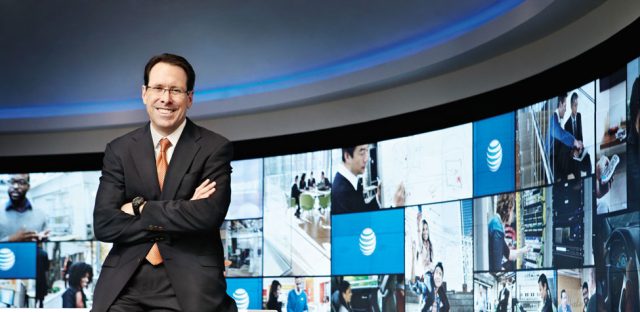
US politicians have been urging tech companies to weaken the security of smartphones and other products by inserting encryption backdoors that let the government access personal data.
Numerous tech companies—including Apple—have come out strongly against the idea, saying that encryption backdoors would expose the personal data of ordinary consumers, not just terrorists.
But tech company leaders aren’t all joining the fight against the deliberate weakening of encryption. AT&T CEO Randall Stephenson said this week that AT&T, Apple, and other tech companies shouldn’t have any say in the debate.
“I don’t think it is Silicon Valley’s decision to make about whether encryption is the right thing to do,” Stephenson said in an interview with The Wall Street Journal. “I understand [Apple CEO] Tim Cook’s decision, but I don’t think it’s his decision to make.”
AT&T has been criticized repeatedly for its cooperation with the US National Security Agency, but Stephenson says his company has been singled out unfairly.
"'It is silliness to say there’s some kind of conspiracy between the US government and AT&T,' he said, adding that the company turns over information only when accompanied by a warrant or court order,” the Journal reported yesterday.
While presidential candidate Hillary Clinton called for a "Manhattan-like project" to help law enforcement break into encrypted communications, Cook argues that it’s impossible to make an encryption backdoor that can be used only by law enforcement. “The reality is if you put a backdoor in, that backdoor's for everybody, for good guys and bad guys,” Cook said last month.
Security researchers recently discovered a backdoor password in Juniper firewall code. Researchers also found a deliberately concealed backdoor in dozens of products sold by a company that supplies audio-visual and building control equipment to the US Army, White House, and other security-conscious organizations.
FBI Director James Comey told lawmakers in October that the Obama administration won't ask Congress for legislation requiring tech companies to install backdoors in their products, but he said the administration would continue lobbying companies to create backdoors even though they're not required to.
Despite AT&T sitting out the debate, plenty of tech companies balk at the idea. A letter to President Obama protesting deliberate weakening of security last year was signed by Adobe, Apple, Cisco, CloudFlare, Dropbox, Evernote, Facebook, Google, Level 3, Microsoft, Mozilla, Rackspace, Symantec, Tumblr, Twitter, and others. AT&T did not sign the letter.
reader comments
165